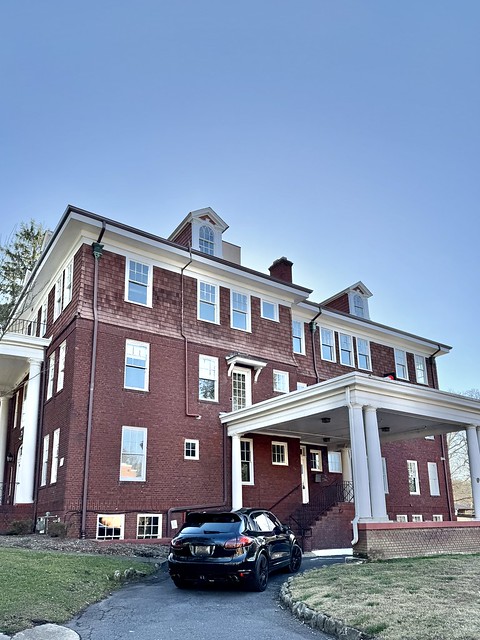Solar Home Security Cameras
A solar home security camera is an alternative to a wired system. These cameras require direct sunlight to recharge, reducing electricity bills and the need to change batteries.
Some solar security cameras come with a subscription plan, providing full-service monitoring for a monthly fee. Other features include adjustable motion sensors, smartphone alerts and remote monitoring. Some models also provide local storage options, which can be accessed via the device’s SD slot.
Energy-efficient
If you’re looking to monitor your business or home with a security camera, consider a solar-powered model. These devices are energy-efficient and work independently from the grid, making them ideal for businesses that want to cut costs. They also have a minimal environmental impact and align with the growing trend towards eco-conscious living.
A solar security camera combines a solar panel and a rechargeable battery to generate electricity and power a surveillance camera. The solar panel converts sunlight into electricity through photovoltaic cells and charges the included batteries throughout the day. solar outdoor camera The battery then stores enough energy to operate the camera through cloudy or rainy periods, as well as at night.
The solar-powered security camera’s battery life depends on the quality of its panel, its wattage, and how often it gets charged during the day. A higher wattage panel is more efficient at converting sunlight into electricity. It also charges the included battery faster, which in turn gives the camera a longer operating time.
A solar-powered camera’s location is also crucial for maximizing its performance. It needs to be placed in a place that receives direct sunlight all year round and has an unhindered view of the area it’s monitoring. This is typically a south-facing wall or in a roof space that’s high up to avoid snow accumulation.
Rechargeable batteries
The battery that powers a solar security camera is recharged by sunlight. This reduces the need for a power cable and eliminates the hassle of having to replace batteries every day. In addition, the cameras’ internal battery stores enough energy to continue working even on cloudy days and during the night. Many security cameras also come with smartphone alerts and remote monitoring to ensure they remain operational when you’re away.
The best solar-powered security camera for you will depend on your needs and budget. Consider factors like camera resolution, field of view, solar panel wattage, night vision, motion activation and remote monitoring. The camera resolution determines how clear the footage will be, and the field of view describes how much of your property will be covered. Night vision and motion activation allow the camera to detect movements in the area and record videos of them. Finally, a remote monitoring feature lets you access and monitor your camera from anywhere in the world.
In addition to the features above, it’s important to take into account the amount of storage your camera offers for video recordings. You should look for models with SD cards that can hold at least 36 hours of 2K 4MP footage. You should also pay attention to the power rating of the battery (expressed in watts) and the voltage. If you want to DIY the solar power solution, choose a third-party solar charging panel that matches your camera’s battery requirements.
Adjustable motion sensors
Unlike traditional security cameras that require regular maintenance, solar-powered models are largely self-contained and can operate without a wired power connection. These systems can be positioned outdoors and come equipped with high-resolution color night vision and PIR motion detection. They also work with smart home devices to enable remote viewing, alerts, and other capabilities.
Solar-powered cameras also work in cloudy weather, as the built-in rechargeable battery can absorb and convert diffused sunlight into electricity. Moreover, the batteries can store energy from periods of strong sunlight and continue to function throughout the day or at night.
When choosing a solar-powered camera, look for one with a high battery capacity and an adjustable motion sensor. The adjustable motion sensitivity prevents false alarms while ensuring that the camera captures relevant events, enhancing overall security efficiency. The brightness of integrated LED lights also helps deter trespassers and other unwanted intruders, while also providing illumination for a safer environment.
The wattage of the solar panel paired with the camera indicates how much electricity it can generate from sunlight. A higher wattage means that it can charge the battery faster and deliver more power to the camera. Additionally, you should choose a solar panel that can be mounted at a height that maximizes its sun exposure. The placement should take into account factors like roof angles, overhangs, and trees, as well as seasonal variances such as snowfall.
High-resolution video
Unlike wired cameras that rely on the power grid for backup, solar-powered security cameras charge from sunlight directly. Depending on the model and quality of the solar panel, it can provide enough energy to keep the camera working at night. Additionally, some models store footage to a removable SD card for easier access. As such, it’s important to pay attention to the storage capacity of a solar camera. Generally speaking, 64GB is sufficient for about 36 hours of 2K 4MP videos.
Solar home security cameras can be a great option for homes and businesses that have limited access to electrical power. They are also eco-friendly and can help reduce carbon emissions. Furthermore, they’re easy to install in a DIY fashion and compete with traditional wired cameras in video performance.
Some solar-powered security cameras work on cellular data and can be used in places with no WiFi or hard-wired Internet connection. Others cctv camera kits feature person/vehicle detection and two-way audio. Some models even offer motion tracking, color night vision, and a live view from anywhere, at any time.
Solar-powered security cameras are durable and can stand up to the elements. Some of them can withstand rain, sleet, and snow while others are water-resistant. However, it’s important to choose a solar-powered camera with enough battery capacity to last through a long period of inclement weather. In addition, check if the camera works with your existing smart home system, such as Apple HomeKit, Amazon Alexa, or Google Home.


